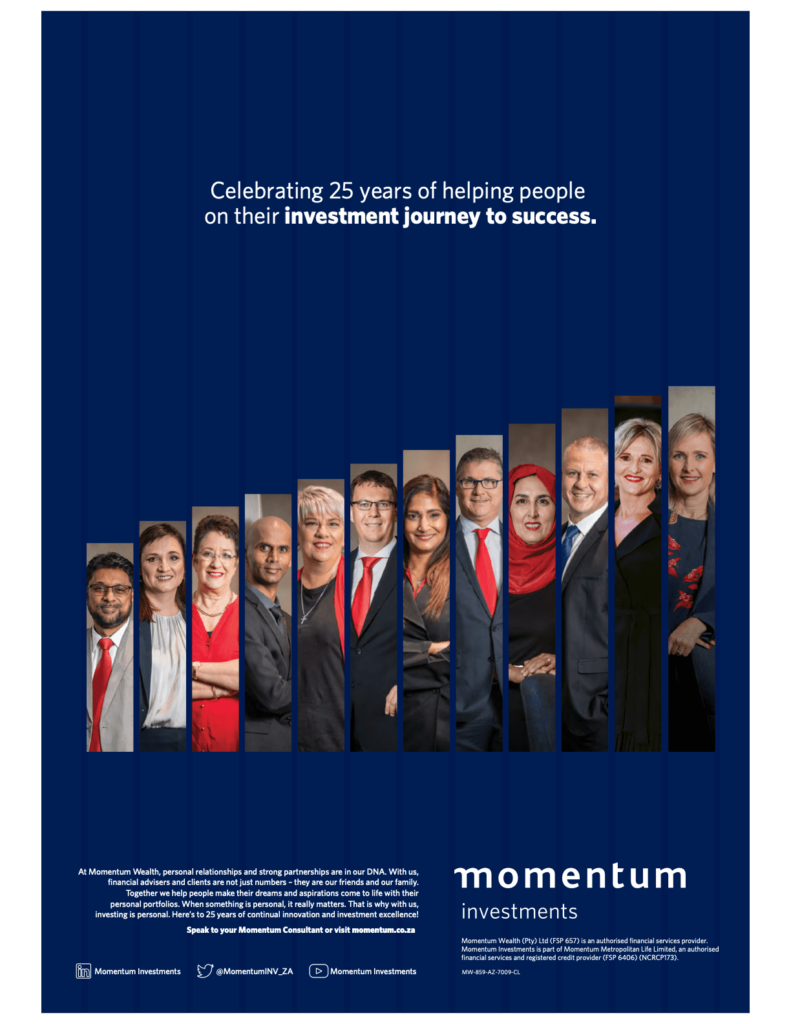
Jeffrey Wiseman from Momentum Trust
The effectiveness of wills is one of the biggest issues when it comes to leaving one’s loved ones a proper and pain-free legacy.
Did you know that 35% of estates are delayed as the deceased’s estate is unable to cover its liabilities? Those are only the numbers from Momentum’s stable of estates.
The number of South Africans whose wills are not aligned to their financial circumstances is likely far higher.
This is a tragedy compounded for so many loved ones who simply want to grieve but are instead incapacitated by frustrating and often debilitating administration and financial red tape. We sit in a situation where not only do too few South Africans even have wills, many of these wills cannot even be executed upon due to lack of financial planning.
“A will is like a roadmap to leaving a lasting legacy for those left behind. Without proper financial planning to back it up, the destination of a lasting legacy will not be reached.”
Luckily, most problems can be solved, although perhaps not in the manner the testator intended. The outcome of issues like marriage, cash shortfalls, assets held in a business or simply giving away more than you have in your personal estate, it can still be given effect to but the outcome will probably not be what the person drafting the will be expected.
A will is like a roadmap to leaving a lasting legacy for those left behind. Without proper financial planning to back it up, the destination of a lasting legacy will not be reached. The will is then merely a piece of paper filled with wishes that never came to fruition. If you don’t properly plan the route your life needs to take, even after that life comes to an end, it is not going to end well for those who you treasure most.
The lack of financial planning forms the heart of this issue as too many South Africans are unaware that a will needs to be backed by a financial plan in order to ensure that the wishes within are actionable. My advice for those who are looking to leave a legally sound and financially viable legacy for their loved ones, starting with the most fundamental lesson of all:
REALISTIC FINANCIAL PLANNING COMES FIRST
Too often we find people preparing a will in isolation. They forget to match it with the tangible financials of their current lives, bequeathing assets and incomes that simply don’t apply to their current circumstances.
The first thing to remember when writing a will is to understand the cost of tying up an estate. The average cost of winding up an estate is around 3.5% plus VAT (15%) of the gross value of the assets, and 6% plus VAT (15%) of income collected after death. The same goes for assets, which, if owned by a company or closed corporation, do not form part of your personal estate and cannot be bequeathed to a beneficiary.
The shares in the company or the If you don’t understand the relationship between the will and your current financial circumstances, you run the risk of running into a cash shortfall and leaving your loved ones with the burden of figuring out what to do next. Everyone should update their will at least once a year, or whenever a major life event occurs, and by consulting a professional financial adviser to assist in this process, one is able to ensure that the wishes contained in the will are rendered effective.
UNDERSTAND THE ROLE OF AN EXECUTOR
It may sound like a grand gesture to have a friend or a family member become the executor of your estate, but this is most likely going to become a great burden for them, especially if they are not equipped with the right knowledge and expertise required of an effective executor.
You should never underestimate the technical skills of a professional executor. Think of it this way, you wouldn’t ask your friend of family member to represent you in a court of law if they weren’t a qualified lawyer, so why would you do the same with your executor? A proper executor has the responsibility of determining the financial position of the estate and has to establish whether if it has enough money to cover all necessary administration costs and debts. If a will is not constructed in the way it was intended for any number of reasons, then your executor may have to sell assets to cover liabilities or follow other processes set out by the Administration of Estates Act.
Is that something you are willing to entrust someone you love with? Especially considering they are likely going to be in a state of grief once you pass away. You should nominate within the will a professional executor to ensure that the will is managed objectively and free from irrational and emotional decisions.
While the executor can’t change a will that has been poorly planned after the fact, this further highlights the need to have a financially sound plan tied to your will so that on death the executor can execute your instructions in the manner they were intended. At the end of the day, a will needs to be legally sound, straightforward and set up by a professional who knows what they are doing.
Don’t fall into the trap of drawing up a will that simply cannot be given effect to as you intended and leaving your loved ones to pick up the pieces.


